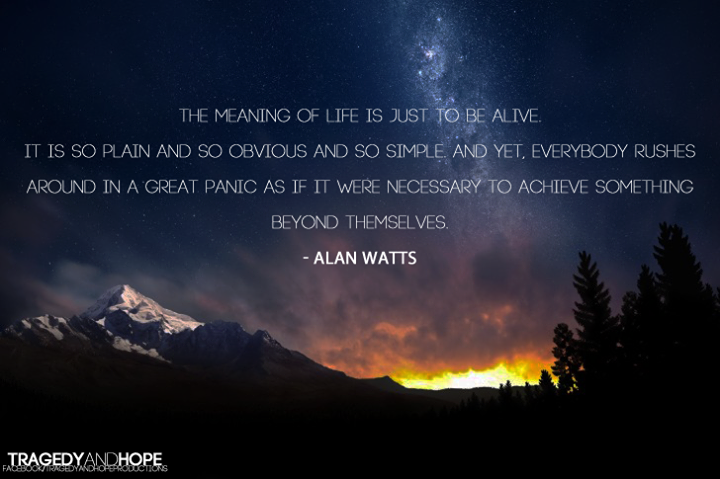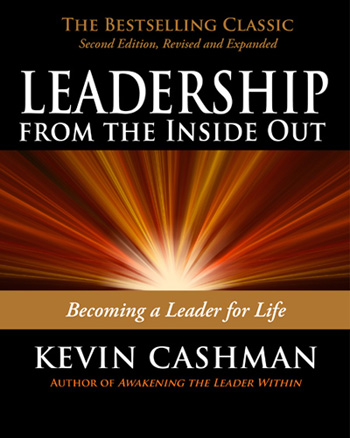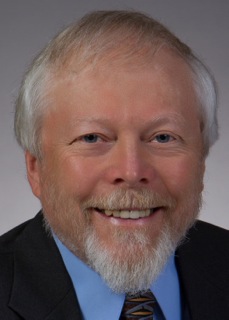Meaning And Purpose: A Key To Wellness

Those in the helping professions have long observed that people who have a sense of meaning and purpose appear to do better with their lives in general and their health in particular. Research over the last ten years is showing us that our observations were spot on. A clear, if even very simple, sense of one’s values, meaning and purpose is linked with greater longevity, fewer heart attacks, better diabetes management, less depression, less sedentary behavior, less Alzheimer’s Disease, and even better sex!
In a previous blog I explored "Meaning and Purpose and the Motivation to Be Well" (http://wp.me/pUi2y-5C). Now let's take a deeper look at the power of this topic.
As early as 1977 (High Level Wellness) wellness author, Don Ardell included Meaning and Purpose in his model of wellness under the dimension of Self-Responsibility. “An aim in life can help you obtain the kind of rewards needed for fulfillment and balance, and is crucial to your feeling “centered” and reasonably content with your life.” Ardell notes that the famous stress researcher, Hans Seyle “believes that a goal or purpose in life is fundamental to positive health and well-being.” Ardell continued to emphasize meaning and purpose in his 1982 book 14 Days To High Level Wellness by including it as one of his five dimensions of wellness and continues to write about it to this day.
"The purpose of life is to live it, to taste experience to the utmost, to reach out eagerly and without fear for newer and richer experience.”
― Eleanor Roosevelt
 Business leaders, life and executive coaches have continuously linked Meaning and Purpose with better work and career performance. Kevin Cashman, author of one of the best books ever written on leadership (Leadership From The Inside Out) (http://cashmanleadership.com/leadership-from-the-inside-out/) included “Purpose Mastery” as one of his “Seven Pathways To Mastery of Leadership From Within”. He sees it as a way to lead by expressing our gifts to create value.
Business leaders, life and executive coaches have continuously linked Meaning and Purpose with better work and career performance. Kevin Cashman, author of one of the best books ever written on leadership (Leadership From The Inside Out) (http://cashmanleadership.com/leadership-from-the-inside-out/) included “Purpose Mastery” as one of his “Seven Pathways To Mastery of Leadership From Within”. He sees it as a way to lead by expressing our gifts to create value.
“Purpose gives meaning and direction to all life. It is the context that frames all of our life experiences into a meaningful whole. If we have it, all the challenging experiences of life serve to forge our identity and character.
Purpose may be the most practical, useful connection to an effective life. It is bigger and deeper than our goals. It is life flowing through us. Purpose releases energy. The higher the purpose, the greater the energy. Purpose also frees us. The more profound the purpose, the greater the sense of freedom. Purpose opens up possibilities.
Purpose is not a goal to be set. It is not something you create. It is something you discover. It calls you.” Kevin Cashman
For Cashman, having purpose allows average-performing individuals and organizations to become highly effective ones. He urges us all to live our lives “On Purpose”.
In recent years there has been more attention given to this topic in the media and in the work of people like researcher Victor Strecher at the University of Michigan (http://www.dungbeetle.org). He sees a direct connection between having a purpose in life and how we behave, particularly in terms of choices that affect our health. For Strecher, lacking a sense of purpose is just as great a health risk as any other (e.g. smoking, obesity, etc.). He believes that when we start thinking “bigger than ourselves” (self-transcendence) we behave in ways that result in great health.
Clarifying our values is a key step to developing our sense of meaning and purpose. Strecher cites research showing that cigarette smokers who affirm their core values are more open to anti-smoking messaging and less defensive about it. He also found that people are more likely to participate in diabetes risk assessments if they have just completed their values list.
Evidence of the connection between health and having meaning and purpose continues to mount. In research published Nov. 3, 2014 in the journal Proceedings of the National Academy of Sciences, University of Michigan researchers “found that people with greater senses of purpose in life were more likely to embrace preventive healthcare: things like mammograms, prostate exams, colonoscopies, and flu shots.” (http://www.theatlantic.com/health/archive/2014/11/live-on-purpose/382252/)

The longevity connection has increasingly found support as well. Dr. Patricia Boyle, a neuropsychologist at the Rush Alzheimer’s Disease Center and an assistant professor of behavioral sciences at Rush University Medical Center in Chicago studied 1,238 older adults using a sense-of-purpose evaluation. “When comparing scores, Boyle found that those with a higher sense of purpose had about half the risk of dying during the follow-up period as did those with a lower sense of purpose. And that was true, she said, even after controlling for such factors as depressive symptoms, chronic medical conditions and disability.”
“What this is saying is, if you find purpose in life, if you find your life is meaningful and if you have goal-directed behavior, you are likely to live longer,” she said.
“Though much other research has found that having a purpose in life is crucial to maintaining psychological wellness and can be important for physical health as well, Boyle said she believes the new study is one of the first large-scale investigations to examine the link between life purpose and longevity.” (http://news.health.com/2009/06/16/have-purpose-life-you-might-live-longer/)
“The purpose of life is not to be happy. It is to be useful, to be honorable, to be compassionate, to have it make some difference that you have lived and lived well.”
― Ralph Waldo Emerson
 The Coach’s Take Away
The Coach’s Take Away
Despite the recognition of the importance of meaning and purpose in personal and professional growth, and numerous studies linking it to the previously mentioned health benefits, the topic is often absent in wellness and health promotion programming. Such programs often use a less-than-holistic approach that focuses on concrete, measurable and objective goals (such as weight loss, health-risk reduction, etc.). Unfortunately some wellness and health coaching work is done the same way. While the rigor of a behavioral approach is appropriate, we must not forget the whole person. This may be where it is good to remember that “wellness coaching” or “health coaching” is really a part of “life coaching”. Our best work comes forward when we help our client to improve their lifestyle by helping them improve their life.
Such whole-life coaching can include helping our clients to create a Wellness Plan that is based upon their values. In helping people get clear about what they truly want in life and develop a Well Life Vision, we help them get more in touch with what their sense of meaning and purpose is. Such a Vision guides them in co-creating with their coach, a Wellness Plan that will best serve them. When the client lacks clarity about their values and sense of meaning and purpose (again, no matter how simple it might be) it will be harder for them to see an imperative motivational link between the goals they are attempting to achieve to improve their wellness, and the action steps they are taking to get there.
Helping Your Client To Discover Their Sense Of Meaning And Purpose
Getting in touch with one’s meaning and purpose is not something that can be artificially injected into a coaching process. People arrive at more clarity about meaning and purpose at many different stages in life. Some folks find it in their youth, others not until the golden years. What a coach can do, however, is help their clients make the seeking of meaning and purpose more of a conscious process. For many it is a matter of getting in touch with the meaning and purpose that they already have.
1. Help your client to get in touch with and clarify their values.
Powerful questions in the coaching conversation can challenge a client to look a little deeper. “What would it look like…” questions are very effective here. “So, what would your life look like once that weight loss is accomplished?” “What would your life be like smoke-free?” “If there was nothing in the way and you could spend a day doing exactly what you want, what would that look like?” “Who else would benefit from you managing your diabetes at a truly effective level?” Also explore “What really energizes or excites you?”
A fun exercise to help your client get in touch with values is to have them describe what they would do on a vacation of their choosing. Present the exercise in a way like this: “Let’s say you have two weeks to take a vacation and there are no obstacles in the way. You can afford it easily. You won’t get behind at work. No problems. Just you doing what you would like to do for two weeks. Describe for me, in detail, what your vacation would be like.” Each person’s vacation story tells so much about them. While one person would backpack the Appalachian Trail, someone else would take an organized bus tour of the Civil War Battlefield sites in the Mid-Atlantic states. From this conversation draw out what values showed up.
2. Ask them to what degree they feel they are living their life in accordance with their values.
The Institute of Stress at McGill University (where Hans Selye did his pioneering stress research) says that the greatest source of stress we can have in our lives is to be living our lives out of accordance with our values. Be prepared for some sadness and possibly regret. Empathize and help your client explore the compromises they have made, the trade-offs, and what they are ready, or not ready, to do about this. Help them to identify what steps they may be ready to make to live the life they really do want to live. This process may have a tremendous and positive effect on their wellness plan.
3. Help your client to live their life “On Purpose”.
As you explore what is important to your client, help them construct “experiments” that can help them to be more in contact with what brings them joy. The pet-lover may want to volunteer with an animal shelter. The nature-lover may want to see what environmental action organizations are in their community. The closet-writer may benefit from risking joining a writers group.
4. Encourage Self-Reflection
Busy lives end up lacking in time for self-reflection. Putting one foot in front of the other, caring for a family, developing a career, etc., we often get out of touch with our true self. As your client values the process of exploring meaning and purpose, encourage them to keep a personal journal. Encourage them to read books that will help with self-exploration and personal growth. (Victor Frankl’s classic Man’s Search For Meaning heads the list.)
Solo-time is a self-reflection practice that can have tremendous value. This may be as simple as setting aside an afternoon to spend quietly alone as you set all work aside. Or it may take on the commitment of a personal quest adventure like The Sacred Passage (http://sacredpassage.com). You might also introduce your client to the idea of a “technological Sabbath” where they “go dark” for a day (no media of any kind, internet, texting, or even phone use)and spend the time more purposefully.
5. Make the development of a greater sense of meaning and purpose a conscious part of the Wellness Plan.
Instead of seeing meaning and purpose as something that just evolves on its own, help your client to engage in a purposeful quest to achieve a greater sense of meaning and purpose. Through the coaching process experiments and action steps can be set up to carry on this exploration. The goal is not to attain clarity on any particular timeline, but to begin the journey and do it consciously!
It may seem challenging to fit a personal exploration of meaning and purpose into a wellness program, or into a coaching process, but if lasting lifestyle improvement is what we are after, it may be one of the most valuable endeavors we can pursue.
“The mystery of human existence lies not in just staying alive, but in finding something to live for.”
― Fyodor Dostoyevsky, The Brothers Karamazov









Only registered and logged in readers can leave comments.